Michigan Wheat and Rye.
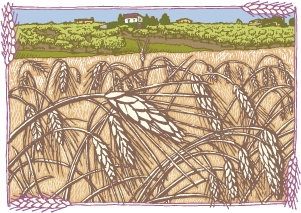 All Good Things Take Time.
All Good Things Take Time.
For many years we have been working to source more local ingredients to bake with. On some fronts we have been successful, on others not so much. You might be surprised to know Michigan-grown and milled flours for baking are very hard to come by. I guess the story of using Michigan grains in Bakehouse breads started with rye four years ago. Back then, we joined up with the Moore Family Farm in Elsie, Michigan about 100 miles away from the Bakehouse. Phyllis Moore agreed to sell us some of her family’s rye and we would see if we could use it in our baking. We bought a few hundred pounds in 2011, tested it and happily found it worked in our recipes. We were determined and inspired to expand on our project. So in 2012, we asked Phyllis for several thousand pounds of rye. This quantity enabled us to nearly go the entire year with every loaf of our traditional Jewish Rye bread having 25% of it’s rye grown in Michigan.
This past year, we committed to more rye and our hope is that we will be able to have every loaf of rye bread baked this year have 25% of it’s rye come from the Moore Farm in Elsie. In addition, our Vollkornbrot loaves will be entirely made with Michigan rye!
Nearly all of the rye flour that we use at the Bakehouse is “medium rye”, a term that describes its grind and indicates that some of the rye bran has been sifted off. When we purchase rye from the Moore family we have it milled as “whole rye” and as such are only able to substitute 25% of what normally goes into our traditional Jewish Rye. This substitution adds a great deal more flavor and integrity to the loaf – adding any more compromises the loft and necessary size of the loaf.
We have more exciting bread news. In March 2014, for the first time in our 21 year history, we’ll be making our signature Farm Bread entirely with Michigan-grown wheat flour.
Wondering how that could be? While we live in a state of incredible agricultural production, Michigan has not really produced wheat for bread production since the late 19th century. Since then nearly all of the wheat grown has been targeted for pastry and cake production, a lower protein and “softer” wheat. We were lucky to cross paths with Phil Tocco, from Michigan State University about 4 years ago and he has helped connect us with farmers in Michigan who were willing to take a chance on growing varieties of wheat that we could bake bread with. We got enough flour from the 2011 growing season to bake a few dozen test loaves, and then from the 2012 season to bake a couple of hundred loaves. Then this past year Phil found a farmer about 85 miles from the Bakehouse who grew enough wheat for us to make about 8,000 loaves of our Farm Bread. We had this wheat milled into bread flour.
In addition to working with Phil , I met Ron Doetch from Solutions In The Land and Patrick Judd from Conservation Design Forum to discuss growing wheat for the Bakehouse bread production. We were unable to connect with farmers willing to grow wheat for us during the 2012 season but continued to meet and last year managed to get a couple of farmers to plant some hard red wheat for bread making. While the wheat planted in Washtenaw County was eventually plowed under (because of the weather conditions this past summer), we were able to get 8,000 pounds of whole wheat flour from the Ed Heinze Farm in South Haven, Michigan. This will be used in our country wheat bread.
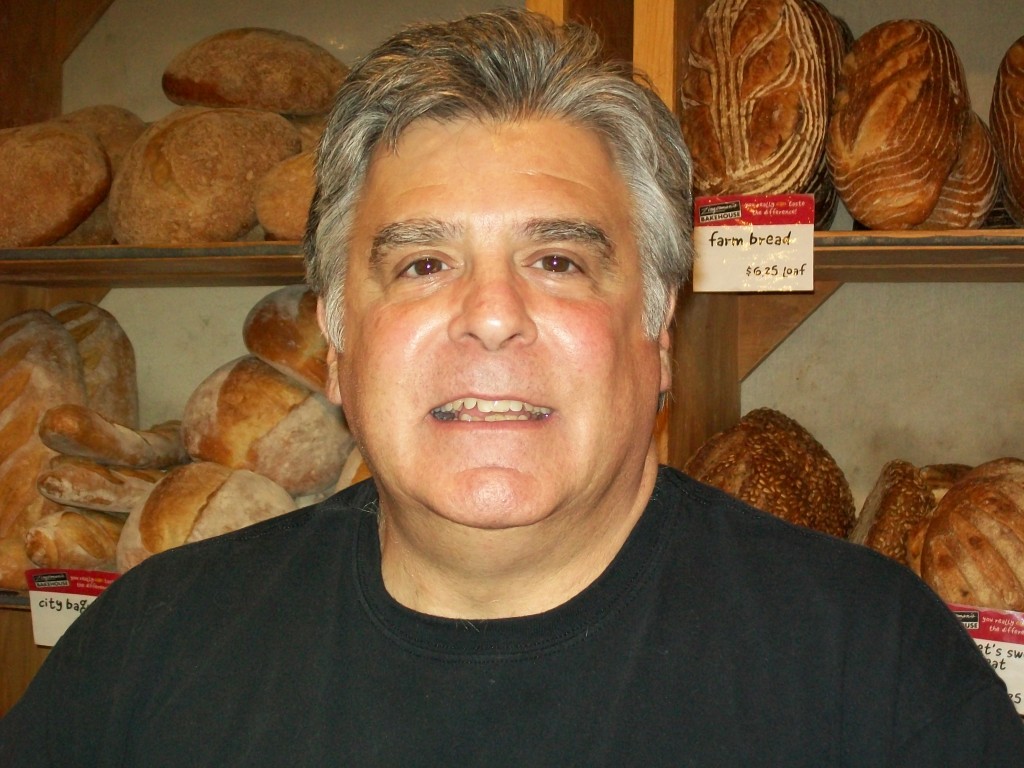 It’s been a long process, but it’s worth it. We’re looking forward to you all enjoying these truly Michigan made loaves of bread in March.
It’s been a long process, but it’s worth it. We’re looking forward to you all enjoying these truly Michigan made loaves of bread in March.
– Frank Carollo
Managing Partner, Zingerman’s Bakehouse

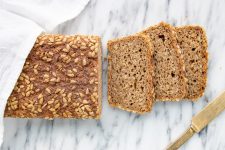
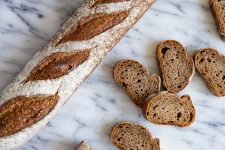
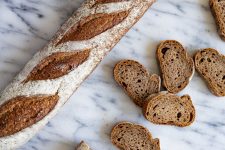
Zingerman’s Art for Sale